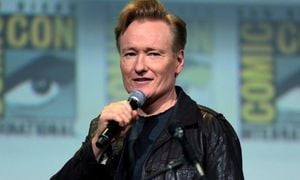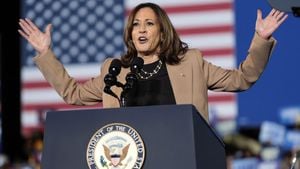The Los Angeles Times, one of the most prestigious newspapers in the United States, is undergoing significant changes after its owner, Patrick Soon-Shiong, decided to dismiss the entire editorial board. This shake-up follows internal disagreements about the newspaper's direction, particularly concerning its endorsement practices for the upcoming 2024 presidential election.
For years, the Los Angeles Times has maintained a consistent tradition of endorsing Democratic presidential candidates, but this year marked a pivotal moment when management announced there would be no endorsement at all. This decision, combined with Soon-Shiong's remarks about wanting to reshape the editorial board to reflect more diverse opinions, has raised serious concerns among staff about the future of the publication's editorial integrity and journalistic standards.
According to sources familiar with the situation, Soon-Shiong expressed his desire for the editorial board to include voices from all political spectrums, aiming for what he described as “a new direction” for the paper. He stated, "If it’s news, it should just be the facts, period. And if it’s an opinion, that's maybe an opinion of the news, and that's what I call now a voice. We want voices from all sides to be heard, and we want the news to be just the facts." This statement indicates his intention to clearly delineate news from opinion, potentially altering the traditional journalistic framework the Times has operated under.
The immediate fallout from this decision has left many among the staff feeling disillusioned. Reports suggest low morale and dissatisfaction as journalists express worries about how these changes could affect their mission of providing accurate and balanced reporting. The editorial board’s past efforts to uphold their policies of endorsements and accountability seem to be at odds with the new ownership strategy.
Executive Editor Terry Tang moved swiftly to address these concerns, reassuring the staff about the newspaper's commitment to factual accuracy and the importance of independent journalism. She affirmed, "Patrick has expressed his full support and confidence in me and the editorial leaders to run the news report as we have. The L.A. Times newsroom has always strived for factual accuracy, dogged accountability journalism, and comprehensive news coverage, and those principles will not change." This message, aimed at soothing worried journalists, emphasized the enduring commitment to credible news reporting, even as the ground shifted beneath them.
Critics of Soon-Shiong’s approach have voiced fears over the potential compromise of the newspaper’s editorial voice and traditional democratic functions. The L.A. Times has been influential, especially when it came to political endorsements, and the discontinuation of this long-standing practice over the presidential candidates has made many wonder about the paper's future role on the national stage.
Despite the upheaval, many staff members are seeking clarity about what the future holds for the editorial policy and how the expected shift will be implemented. Tang mentioned upcoming staff meetings where new protocols will be discussed, aiming to address the anxieties surrounding these changes.
Notably, this isn't the first time the Los Angeles Times has faced scrutiny over its practices. The owner’s recent comments came immediately after he ignited controversy by announcing there would be no endorsement for the upcoming presidential election, a move widely seen as contrasting with the paper’s historical pattern. The Times’ editorial board planned to endorse Vice President Kamala Harris but was halted following Soon-Shiong’s announcement. This abrupt change has left many questioning the editorial direction and whether it might inadvertently alienate loyal readers who expect informed opinions alongside their news.
It remains to be seen how these changes will affect the paper’s readership and whether these strategic shifts rejuvenate the Los Angeles Times or lead to greater dissatisfaction among its staff and audience. The coming weeks will likely reveal the results of Soon-Shiong’s ambitious plans and whether the newspaper can reconcile its rich legacy of journalism with modern demands for political interpretation.
With the significant turnover of the editorial board and the pending changes, the Los Angeles Times finds itself at a crossroads. The challenge will be balancing the need for diverse opinions and accurate reporting, all within the framework of maintaining the trust and credibility established by decades of journalism. For the Times, the's results will extend far beyond the editorial board, influencing how the publication informs the public about the major issues facing the nation.



